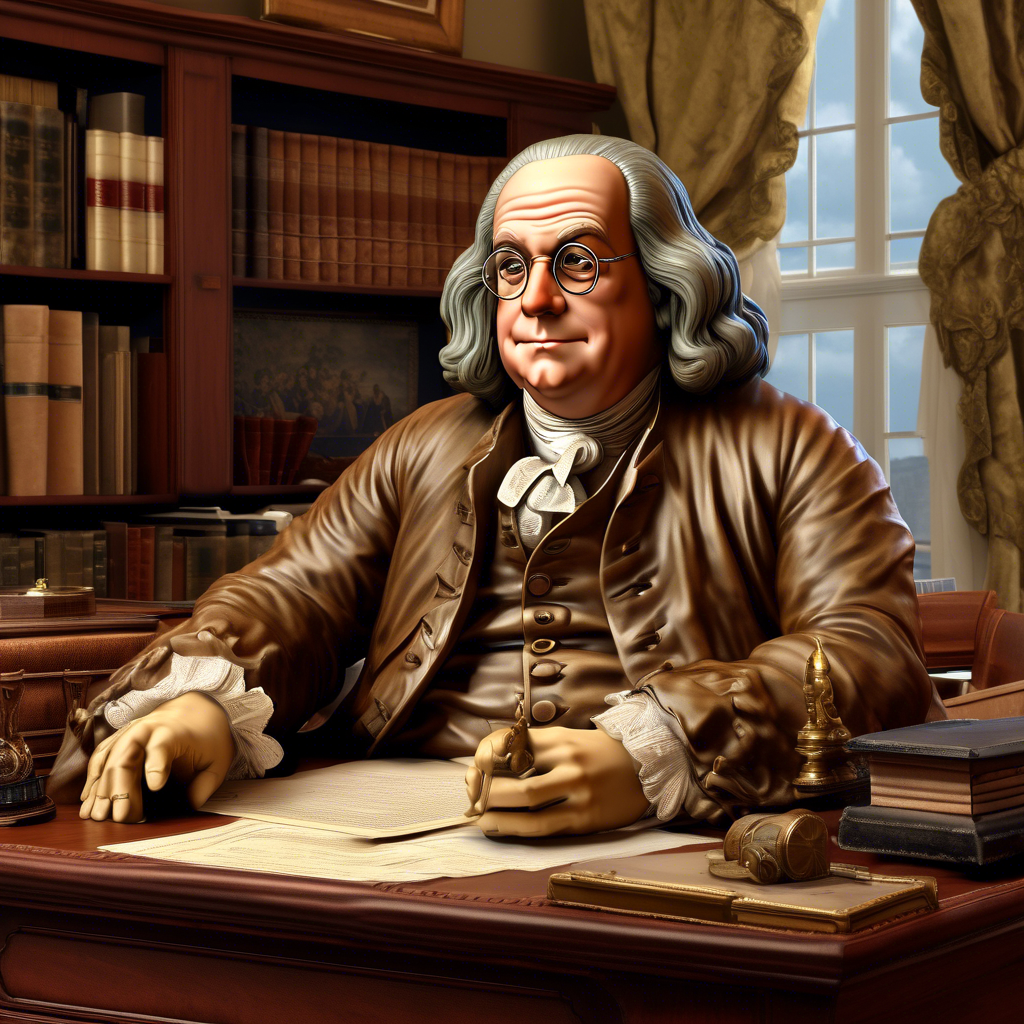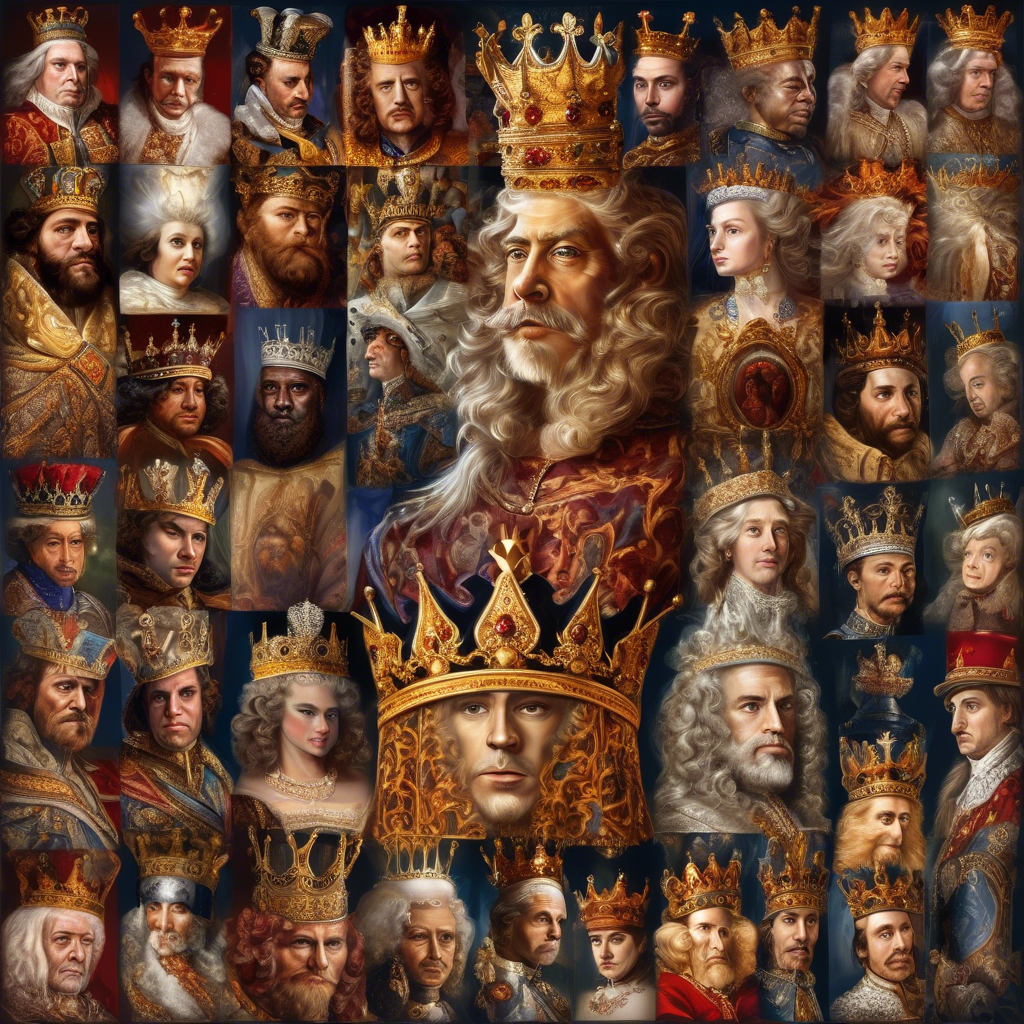
1. Introduction
Benjamin Franklin, one of the founding fathers of the United States, was a man of many talents and accomplishments. Born in Boston on January 17, 1706, Franklin’s life journey was marked by his relentless pursuit of knowledge, innovation, and service to his country. This article delves into the various aspects of Benjamin Franklin’s life, from his early years to his lasting legacy on American society and beyond.
Background Information on Benjamin Franklin
Benjamin Franklin was a renowned polymath, author, printer, political theorist, politician, postmaster, scientist, inventor, civic activist, statesman, and diplomat. His diverse range of interests and contributions made him a pivotal figure in American history and a respected voice in the international community.
Overview of His Early Life and Family Background
Born to Josiah Franklin, a soap and candle maker, and Abiah Folger, Benjamin Franklin was the 15th of 17 children. His family’s modest means did not hinder his thirst for knowledge and passion for self-improvement. Franklin’s early exposure to the printing trade and his voracious reading habits set the stage for his remarkable journey ahead.
2. Early Life and Family
Birth and Childhood
Benjamin Franklin was born in a small house on Milk Street in Boston, Massachusetts. His early years were marked by curiosity and a keen intellect that set him apart from his peers. Despite limited formal education, Franklin’s insatiable appetite for learning led him to become a self-taught individual with a deep understanding of various subjects.
Family Background and Upbringing
Growing up in a large family, Franklin learned the values of hard work, frugality, and community engagement from his parents. His father’s trade as a candle maker exposed him to the world of business and commerce, laying the foundation for his future endeavors as an entrepreneur and statesman.
Education and Early Influences
Although Franklin’s formal schooling was limited, he made up for it through his voracious reading and self-education. His apprenticeship in his brother’s printing shop introduced him to the world of publishing and communication, setting the stage for his later career as a writer and publisher.
3. Career and Achievements
Career Path and Notable Accomplishments
Franklin’s career trajectory was marked by his entrepreneurial spirit and innovative thinking. From his early days as a printer to his later roles as a statesman and diplomat, Franklin’s accomplishments were diverse and far-reaching. His establishment of the first public lending library in Philadelphia and his contributions to the field of electricity are just a few examples of his lasting impact.
Contributions to Various Fields such as Science, Politics, and Literature
Franklin’s interests were wide-ranging, encompassing science, politics, and literature. His experiments with electricity led to groundbreaking discoveries, while his political writings and speeches inspired a generation of revolutionaries. Franklin’s literary works, including his famous “Poor Richard’s Almanack,” showcased his wit and wisdom to a wide audience.
Role in the American Revolution and Founding of the United States
As a key figure in the American Revolution, Franklin played a crucial role in uniting the colonies and securing support from foreign allies. His diplomatic efforts in Europe, including securing the Treaty of Alliance with France, were instrumental in securing American independence. Franklin’s contributions to the drafting of the Declaration of Independence and the U.S. Constitution underscore his enduring legacy as a founding father.
4. Personal Life and Relationships
Marriages and Family Life
Throughout his life, Franklin maintained close ties with his family, despite spending extended periods away on diplomatic missions. His marriage to Deborah Read and his relationships with his children were central to his personal happiness and well-being.
Friendships and Social Circle
Franklin’s charismatic personality and intellectual prowess attracted a wide circle of friends and acquaintances. His correspondence with prominent figures of his time, such as Thomas Jefferson and John Adams, reflects his influence and standing in society.
Personal Beliefs and Values
Franklin’s moral philosophy, as embodied in his “13 Virtues,” emphasized virtues such as temperance, industry, and humility. His commitment to self-improvement and civic duty served as a model for generations of Americans seeking to better themselves and their communities.
5. Later Years and Legacy
Retirement and Later Years
After a lifetime of service to his country, Franklin retired to Philadelphia, where he continued his civic engagement and philanthropic work. His later years were marked by a focus on education, public service, and the pursuit of scientific knowledge.
Contributions to Society and Philanthropy
Franklin’s legacy as a philanthropist and civic leader is evident in his founding of institutions such as the University of Pennsylvania and the Pennsylvania Hospital. His belief in the power of education and public service shaped his contributions to society in profound ways.
Impact and Legacy of Benjamin Franklin’s Life and Work
Benjamin Franklin’s impact on American society and beyond is immeasurable. His innovations in science, his leadership in politics, and his moral philosophy continue to inspire and influence people around the world. Franklin’s legacy as a statesman, inventor, and thinker endures as a testament to the power of intellect, perseverance, and civic virtue.
6. Death and Aftermath
Circumstances of His Death
Benjamin Franklin passed away on April 17, 1790, at the age of 84. His death marked the end of an era and left a void in American public life that would be difficult to fill.
Reactions to His Passing
The news of Franklin’s death reverberated across the Atlantic, with tributes pouring in from world leaders and ordinary citizens alike. His contributions to science, politics, and literature were lauded as unparalleled and enduring.
Continued Influence and Remembrance
Even after his passing, Benjamin Franklin’s influence continued to shape American society and culture. His writings, inventions, and political legacy remain a touchstone for those seeking to understand the principles of democracy, innovation, and civic engagement.
7. Conclusion
Summary of Benjamin Franklin’s Life and Legacy
Benjamin Franklin’s life was a testament to the power of intellect, perseverance, and civic virtue. From his humble beginnings to his role in shaping the United States, Franklin’s legacy as a statesman, inventor, and thinker endures as a beacon of inspiration for generations to come.
Key Takeaways and Lasting Impact
The key takeaways from Benjamin Franklin’s life include his commitment to self-improvement, his belief in the power of education, and his dedication to public service. Franklin’s lasting impact on American society and the world at large serves as a reminder of the enduring influence of visionary leaders.
8. References
– Franklin, Benjamin. “The Autobiography of Benjamin Franklin.”
– Isaacson, Walter. “Benjamin Franklin: An American Life.”
– Morgan, Edmund S. “Benjamin Franklin.”
– Various online sources and historical archives.
In conclusion, Benjamin Franklin’s life and work exemplify the values of innovation, leadership, and legacy. His contributions to science, politics, and literature have left an indelible mark on American history and continue to inspire future generations to strive for excellence and service to their communities.




Leave a Reply